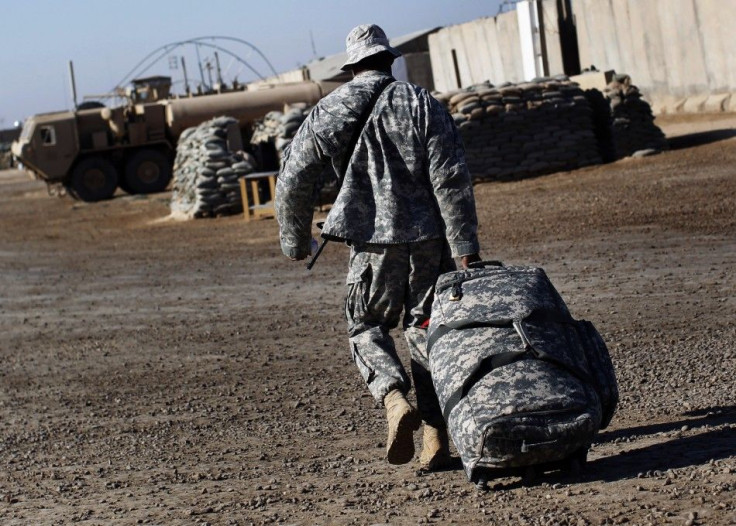Iraq Withdrawal: After Troops Leave, A Substantial American Presence
ANALYSIS

Given the ceremonies marking the imminent departure of the last U.S. troops from Iraq, it would be fair to assume that America's nearly decade long entanglement with Iraq is about to come to an end.
The truth is more complicated. While a deal to maintain some American troops in the country collapsed after Iraqi politicians refused to grant the troops immunity from Iraqi law, Iraqi president Nouri al-Maliki has said he is open to negotiating a role for American troops that would likely include helping to train Iraqi security forces.
Al-Maliki Still Sees Need For a U.S. Presence
The stability of Iraq after the withdrawal of American forces has been a major concern of both our nations, al-Maliki wrote in a Washington Post op-ed. I believe in the capabilities of our security forces and in the necessity of U.S. assistance.
Whether or not that happens, there will still be a massive diplomatic presence and a small army of contractors to defend them. The State Department has estimated that between 16,000 and 17,000 diplomatic personnel will remain, supported by some 5,500 private security contractors.
That will include the State Department overseeing contractors who are flying helicopters and driving mine-resistant, ambush protected vehicles, or MRAPs. Col. John S. Laskodi, commander of an army brigade tasked with helping the State Department assume control of equipment that includes MRAPs, noted that the Department of State is establishing its largest mission in its history.
Many people have the perception that the United States will have departed Iraq by the end of 2011, Laskodi said. While the combat mission performed by uniformed military presence will transition, the 402nd Army Field Support Brigade will continue to support our nation's objective of maintaining a stable, strategic partner in the Government of Iraq.
Huge Diplomatic Task, Moving Forward
Officials say that the scope of the continuing diplomatic mission in Iraq, including absorbing contractors who had formerly been overseen by the Department of Defense, is unprecedented.
The State Department is doing something that quite frankly we have never done before, this is not going to be easy and I think we all understand that, Deputy Secretary of State Thomas Nides told CNN.
Private security forces never received the immunity from Iraqi law that the Obama administration made a prerequisite for American troops remaining. The shooting death of 17 Iraqi civilians by State Department contracted guards working for the firm Blackwater (later renamed Xe) crystallized Iraqi anger and distrust for American hired guns.
A Senate Foreign Relations Committee report analyzing the the transition noted that in the absence of U.S. troops, civilians,
rather than soldiers, are likely to write the last chapter of the American war effort in Iraq. During a hearing following the report's release, committee chair John Kerry (D-MA) sounded a note of caution about replacing a military presence with a private mercenary presence.
The State Department is scheduled to assume full security responsibilities in a still dangerous and unpredictable environment and must strike a difficult balance between maintaining a robust presence and providing a sufficient level of security, the report noted, adding that the State Department would face the dilemma of being able to effectively operate in difficult security environments without the support of the American military.
The Obama administration is also planning to compensate for the absence of American troops in Iraq by fortifying the U.S. military elsewhere in the Persian Gulf region. That could include pouring more combat forces into Kuwait, where they would be strategically positioned for swift deployment, and sending more naval ships.
We are kind of thinking of going back to the way it was before we had a big 'boots on the ground' presence, Maj. General Karl R. Horst, Central Command's chief of staff, told The New York Times. I think it is healthy. I think it is efficient. I think it is practical.
© Copyright IBTimes 2024. All rights reserved.





















